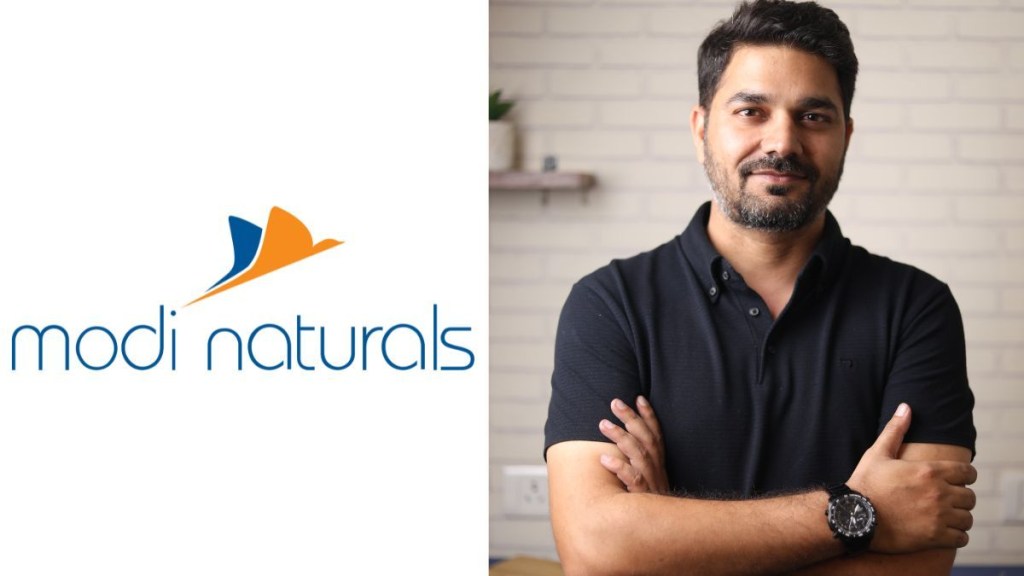Fast Moving Consumer Goods (FMCG) company Modi Naturals plans to revive profit by rolling out its own direct-to-consumer (D2C) platform, in an effort to increase direct reach besides ramping up its distribution network across offline stores. “We have an omni-channel presence. In the next two years, we are looking to grow our direct distribution in urban regions from about 50,000 outlets to 60,000-70,000 outlets. We will soon launch our own D2C platform to serve consumers directly,” Mukesh Ghuraiya, chief marketing officer, Modi Naturals Ltd., told BrandWagon Online.
As per the company its brands are available across offline and online channels such as Reliance Fresh, Walmart, More Retail, Amazon, Blinkit, Flipkart, Big Basket, among others. It claims that its products are currently distributed in 3,000 organised modern retail outlets besides working with 450 distributors, which provides a reach to about 50,000 kirana stores.
The company’s profit after tax (PAT) declined 10.56% to Rs 9.37 crore in FY22 from Rs 10.52 crore, during the same period in the corresponding year. The company’s revenue from operations rose 7.14% to Rs 474.3 crore in FY22 from Rs 442.7 in FY21.
The company claims to have spent Rs 15 crore on advertising and marketing in FY22. It further states that about 60% of its budget it spent during monsoon and festive seasons that is between August-December, which also happens to be the peak selling season. “We spent about Rs 15 crore on advertising on all our brands. Moreover, 90% of the budget it spent on digital platforms including connected TV, over-the-top (OTT), besides other social media platforms. Ony 10% of the budget is deployed to traditional media, including television and print,” he added.
Currently, Modi Naturals has two divisions, business-to-business (B2B) and business-to-customer (B2C), with the former accounting for 60%. Modi Biotech Private Limited (MBPL) – the B2B business was formed in April 2021. MBPL has received in-principal approval for a 210 KLD distillery for the manufacture of ethanol from the Central Government. The company, Modi Naturals, manufactures de-oiled cakes, rice barn oils, among other oils. It has four production facilities in India for edible oil. Out of four manufacturing facilities, two units are located at Pilibhit (Uttar Pradesh), one unit in Hyderabad (Telangana), and one in Sonipat (Haryana) for manufacturing of all variants of edible oil and other food products.
In the FMCG space, the company has expanded its olive oil brand with Oleev Kitchen and PIPO foods. Under Oleev, which is the edible oil brand, the company has six variants with over 15 SKUs (stock keeping unit). In the food’s portfolio, the company has over 40 SKUs across five product categories under three brands, PIPO, Oleev Kitchen and JYNX. “We have multiple SKUs across different segments. The average price of one litre olive oil is about Rs 270 which goes up to Rs 1,300 for a five litre bottle. If I say there is a 50-50 split, the average will come around Rs 600 – 700. The price of PIPO food ranges between Rs 10-80 and the price for our instant drink mix is Rs 100 for 500 grams,” Ghuraiya explained.
Furthermore, the company claims to have entered healthy snacking space recently, with the launch of new products such as pop-corn, roasted flavoured peanut, peanut butter, among others. It plans to utilise its current distribution network to drive sampling and sales. “Over a period, we have built a strong relationships with retailers across formats, and we will leverage that distribution to introduce our new brands. Each category has a certain affinity for a certain channel. For example, snacks as a category is growing very fast on quick-commerce and hence its part of our focused approach,” Ghuraiya explained.
Additionally, the company has tied-up with actors Chitrangada Singh and Kalki Koechlin to promote new products and plans to create a video featuring Koechlin.
Furthermore, the company claims that e-commerce accounts for 20% of its sales while offline retail accounts for the remaining 80%. “Offline retail still contributes the majority of our business however, e-commerce is growing fast. It has the potential to reach 30% in terms of contribution to our sales in the immediate future,” Ghuraiya explained. The FMCG sector which was valued at $110 billion in FY20 is expected to reach $220 billion by FY25, as per market research firm Statista. Players including ITC, HUL, among others continue to lead the space.

